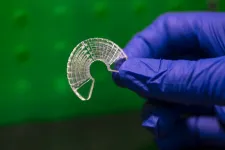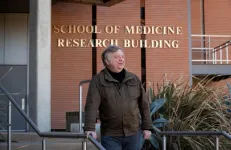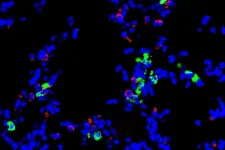To begin the dialog about the future of PhD education in research-intensive schools, the University of Pennsylvania School of Nursing (Penn Nursing) invited 41 educational, governmental, professional, and philanthropic institutions to a summit in 2019. During the summit, participants collaborated on re-envisioning how nursing PhD programs can successfully advance nursing science and situate research-focused nursing PhD graduates for success in academia and beyond. An upcoming issue of the Journal of Professional Nursing features manuscripts from that forum, which offer a broader, overall strategy for informing stakeholder groups that shape nursing PhD programs in research-intensive institutions.
"This synthesis of discussions, considerations, and challenges affecting research-focused doctoral programs of nursing serve as a basis and catalyst for further discussion and action to ensure PhD research-focused programs are preparing successful nurse scientists of the future," says Antonia M. Villarruel, PhD, RN, FAAN, Professor and Margaret Bond Simon Dean of Nursing.
"Re-envisioning of research doctorate programs is urgently needed to ensure the advancement of science and the development of new knowledge to situate our graduates for success - in academia and beyond," says Julie A. Fairman, PhD, RN, FAAN, Endowed Chair, Nightingale Professor in Honor of Nursing Veterans. Villarruel and Fairman were guest editors of the issue.
Advancing Nursing Science Through Re-envisioned PhD Programs PhD programs, in general, remain fairly traditional in approach and scope, instigating few changes in programmatic offerings and moving existing curriculum online. The Penn Nursing summit in 2019 was held to address these issues.
The article "Invitational Summit: Re-envisioning Research-Focused PhD Programs of the Future" shares the questions used to survey the summit attendees before the program and the responses. The article outlines the challenges facing research-intensive nursing PhD programs, emerging innovations within programs, and suggested changes to re-envision the future education of nurse scientists. Fairman and Villarruel co-authored the article with Kathleen McCauley, PhD, RN, FAAN, FAHA, Professor Emerita of Cardiovascular Nursing at Penn Nursing; and Nicholas A. Giordano, Assistant Professor, Emory University Nell Hodgson Woodruff School of Nursing.
Approaching Doctoral Nursing Education in Novel Ways The rapid growth of science and the need to prepare the next generation of nurse scientists call for innovative approaches in educating and supporting them throughout their careers. Aside from curricular changes, a new PhD education model for nurses should include new approaches to mentoring, funding, and networking supports. Equally important are rigorous process and outcome measures for innovations to inform changes to doctoral programs. The article "Innovations in PhD Education to Prepare Nurse Scientists for the Future" outlines those recommendations and includes the need to structure faculty development earlier in professorial careers, develop team models of advisement, and longitudinal follow-up of alumni graduates from PhD programs to examine the effectiveness of innovations.
Villarruel co-authored the article with Marion E. Broome, Duke University School of Nursing; and Hilaire J. Thompson, University of Washington School of Nursing.
Advancing Nursing Science Through PhD Programs Nurses are well-positioned to be groundbreaking researchers, scientists, leaders, and innovators to improve the health and well-being of individuals, families, and communities. Thoughtful consideration is required about the preparation of PhD nurse scientists to ensure they are equipped with the knowledge and skill sets to meet the needs of society and to ensure the relevance and competitive status of nursing science.
The article "PhD Programs and the Advancement of Nursing Science" outlines three aspects of PhD education and nursing science. These include examining important elements to support nurse scientist development; identifying key gaps in science that the discipline needs to address in educating the next generation of nurse scientists; and preparing nurse scientists for the competitive funding environment.
Authors of the article include Therese S. Richmond, PhD, RN, FAAN, Andrea B. Laporte Professor of Nursing and Associate Dean for Research & Innovation at Penn Nursing; Paule V. Joseph, of the National Institute of Nursing Research; and Linda McCauley of the Emory University Nell Hodgson Woodruff School of Nursing.
Leveraging Insight from Funders and Sponsors Re-envisioning PhD education at research-intensive institutions to produce the nurse scientists of the future is imperative for the discovery of solutions for current and complex health care challenges facing the country. Philanthropic funders and sponsors of PhD nursing education have important insights into how investments in PhD education have direct and positive impacts on health care and bring important perspectives to emerging roles for PhD-prepared nurses.
The article, "Emerging Roles for Research Intensive Ph.D.-Prepared Nurses as Leaders and Innovators: Views from Funders/Sponsors" reports on the ideas these funders shared, including the importance of increasing the focus on formal leadership preparation and training in innovation.
Co-authors of the article include Nancy A. Hodgson, PhD, RN, FAAN, Professor & Chair of the Department of Biobehavioral Health Sciences; MaryJoan Ladden, formerly of Robert Wood Johnson Foundation; Elizabeth Madigan, Sigma Theta Tau International Honor Society of Nursing; Ahrin Mishan, Rita and Alex Hillman Foundation; and Wanda Montalvo, Jonas Nursing & Veterans Healthcare.
Preparing Nurses for Nontraditional Career Paths Advancing the health of patients and communities depends on preparing the next generation of nurse scientists to pursue career trajectories outside of traditional academic institutions. Redesigning nursing PhD curricula must include preparation for careers in many sectors of health care, professional organizations, government, or industry.
During the summit, executives from health systems and organizations shared their career trajectories, experiences, and perspectives for revamping PhD curriculum and offered educational experiences to broaden the scope of academic rigor to inspire and prepare future nurse scientists for nontraditional research positions in practice. Their thoughts regarding why research-intensive PhD programs must address the PhD study milestones to enable their graduates to be competitive in seeking positions in emerging roles outside of academic institutions and recommendations for achieving these milestones are included in the article "Emerging Roles for Research Intensive PhD Prepared Nurses: Beyond Faculty Positions."
Rosemary C. Polomano, PhD, RN, FAAN, Associate Dean for Practice Professor of Pain Practice, is the lead author of the article. Co-authors include Nicholas A. Giordano, Emory University Nell Hodgson Woodruff School of Nursing; Suzanne Miyamoto, American Academy of Nursing; Deborah Trautman, American Association of Colleges of Nursing; Sheila Kempf, Penn Medicine Princeton Health; and Paula Milone Nuzzo, Massachusetts General Hospital.
Pedagogical Innovations in PhD Nursing Education Over the past decade there have been numerous innovations in PhD programs that have redesigned the curricula and delivery of research-focused doctoral nursing education. The article, "Opportunities and Challenges Presented by Recent Pedagogical Innovations in Doctoral Nursing Education," explores core issues resulting from key program changes such as expanding both 3-year and PhD programs and BSN to PhD programs. This paper makes the case for a national effort to evaluate the effects of these program modifications on the development of nurse scientists and, ultimately, the nursing discipline. Understanding the impact of pedagogical innovations will inform ongoing improvements essential to educate the next generation of nurse scientists to conduct high quality research in an increasingly multidisciplinary environment.
Authors of the article include Mary D. Naylor, PhD, RN, FAAN, Marian S. Ware Professor in Gerontology & Director of the NewCourtland Center for Transitions and Health; Peggy Compton, PhD, RN, FAAN, van Ameringen Chair in Psychiatric and Mental Health Nursing; Nicholas A. Giordano, Emory University Nell Hodgson Woodruff School of Nursing; Paule V. Joseph, National Institute of Nursing Research; Carol Ann Romano, Uniformed Services University of the Health Sciences; and Mariann R. Piano, Vanderbilt University School of Nursing.
PhD Programs of the Future Over the last 20 years, the number of research-focused doctoral programs in nursing has nearly doubled--from 78 programs in 1999 to 145 programs in 2019. Yet, despite this significant increase in programs, the number of students pursuing the PhD (or equivalent programs) in nursing has declined over the past five years.
From recruiting strategies and subject areas to evaluation methods and funding, discussions at both the Penn Nursing summit and the AACN Doctoral Education Conference authors identified opportunities for improving research-focused doctoral programs for nurses. The article "From Vision to Action: Next Steps In Designing PhD Programs of the Future" synthesizes those discussions and outlines next steps in refining doctoral education in general and in research-focused programs in particular. Villarruel is lead author with co-authors Fairman and Deborah Trautman, American Association of Colleges of Nursing.
INFORMATION:
About the University of Pennsylvania School of Nursing
The University of Pennsylvania School of Nursing is one of the world's leading schools of nursing. For the sixth year in a row, it is ranked the #1 nursing school in the world by QS University and is consistently ranked highly in the U.S. News & World Report annual list of best graduate schools. Penn Nursing is ranked as one of the top schools of nursing in funding from the National Institutes of Health. Penn Nursing prepares nurse scientists and nurse leaders to meet the health needs of a global society through innovation in research, education, and practice. Follow Penn Nursing on: Facebook, Twitter, LinkedIn, & Instagram.




